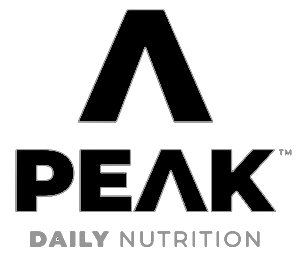What is Creatine and Why Should I Use It?
Creatine is a nitrogen-containing compound, similar to a protein, constructed from the amino acids arginine, glycine, and methionine. It can be consumed via food, supplements, or produced by the body.
Creatine phosphate is a high-energy compound used by strength athletes to improve performance by rapidly replenishing ATP as an energy source in the body. A normal resting level for total muscle creatine is 120 mmol/kg, which includes 40 mmol/kg creatine and 80 mmol/kg creatine phosphate. When participating in intense exercise, the total muscle creatine doesn’t change, but creatine phosphate can drop very low within a few seconds. Very low muscle creatine-phosphate causes muscle fatigue, negatively impacting the body’s ability to produce force during strength training. The duration of the creatine-phosphate energy system is estimated to be between 5-10 seconds.
The key advantage of the creatine phosphate energy system is that it rapidly replaces ATP, a major source of energy. The disadvantage is that it can be rapidly depleted and is a short-duration energy system, stored in very limited amounts in the muscles.
How Much Creatine Should I Take?
The recommended dosage for creatine as a dietary supplement is 3-5g per day, mixed with water on training days. Even though creatine is not known to directly increase muscle mass, studies suggest that creatine supplementation can increase an athlete’s ability to train harder, which results in better performance. Clinical evidence cautions against taking more than 5g per day or using creatine on non-exercise days.
Studies suggest that taking a smaller dose of 3g per day for one month will result in the same muscle creatine concentration as athletes taking 20-25g per day over 5-6 days. Both dosages result in a 20% increase in muscle creatine concentrations. (It is recommended to consult with your healthcare professional before considering creatine loading.)
How Does Creatine Supplementation Work?
Creatine supplementation can increase muscle creatine and creatine-phosphate concentrations by up to 20%. This is achieved by increasing intracellular water in the muscle, which may stimulate muscle glycogen storage and enhance protein metabolism. The amount of creatine absorbed by muscles depends largely on the existing muscle creatine levels before supplementation.
Athletes respond differently to creatine supplements. While it is likely to increase overall muscle creatine concentrations, some athletes may experience a substantial increase, while others might notice only a small increase. Those with low muscle creatine levels at baseline may experience a higher increase compared to individuals with higher muscle creatine concentrations before supplementation.
What Are the Recommendations for Creatine Supplementation?
Current research suggests that creatine supplementation is safe when used in the correct dosage. Recommendations for using creatine supplements include:
-
Strength and Power-based Activities: Creatine is highly specific to these activities.
-
Combine with Strength Training: Creatine is most effective when combined with strength training.
-
Response Variability: The effectiveness may depend on your initial creatine levels.
-
Avoid If You Have Kidney Issues: Creatine should be avoided if there is any history of kidney disease or dysfunction.
-
Typical Dosage: The typical supplement dose is 3-5g per day.
-
Improve Absorption: Creatine may be consumed with carbohydrates to improve absorption.
-
Hydration: Ensure proper hydration when using creatine.
Reference
Dunford, M. & Doyle, J.A. (2019). Nutrition for Sport & Exercise (4th Edition), P20, 67-73, 364-366.













